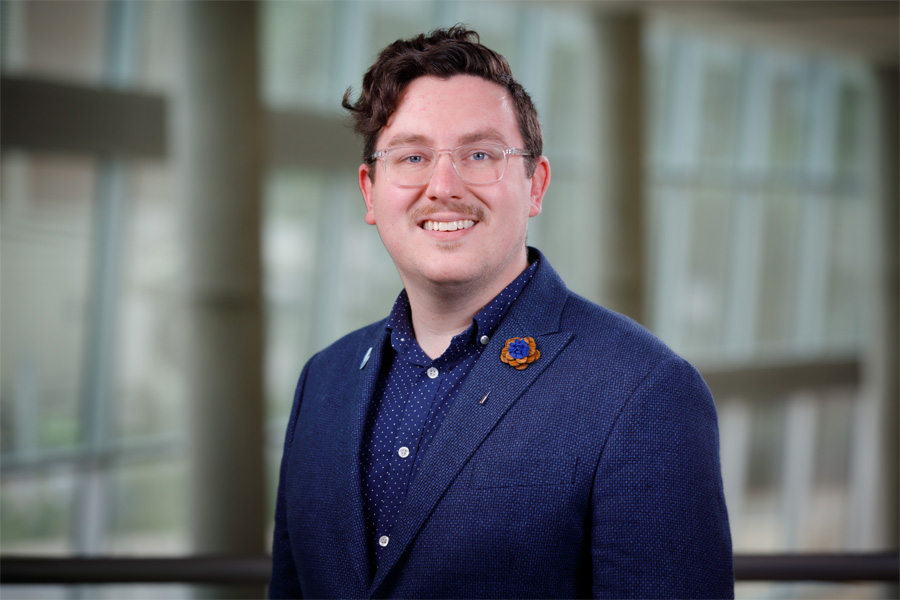Brady Sillman, PhD

Research Interests
My research is focused on developing long-acting slow effective release antiretroviral therapy (LASER ART), with the goal of a once-a-year injectable formulation, for the treatment of Human Immunodeficiency Virus 1 (HIV-1) infection. To achieve this, we developed novel systems of modifying and nanoformulating ART and targeting it to macrophages in vivo to facilitate drug storage, protection, and delivery to viral reservoirs. Together, these systems (drug modification and formulation) help to prolong the apparent half-life of the drugs, allowing for extended dosing regimens, along with improving the overall pharmacokinetics, biodistribution, and pharmacodynamics of the drugs. My long-term research interests involve the development of a comprehensive understanding of drug design, modification, and delivery and how these contribute to the treatment of human diseases, notably HIV-1.
Ongoing Projects
Development of a Once-A-Year Long-Acting Injectable Integrase Inhibitor for the Treatment of HIV-1 Infection
My main research focus is on transforming currently available HIV-1 integrase inhibitors (dolutegravir and cabotegravir) into a once-a-year long-acting injectable for use in pre-exposure prophylaxis (PrEP), HIV-1 transmission control, and maintenance therapy in virologically surpressed patients. Such a long-acting regimen will allow increased patient compliance with an ability to maintain consistent drug levels at effective concentrations in plasma and tissues. This strategy will improve treatment outcomes and could act as a vaccine mimetic. To these ends, I am involved in the synthesis, characterization, and quality control of libraries of prodrugs of these integrase inhibitors. Nanoformulations are then prepared by encasement of the prodrugs in biocompatible surfactants to create lipophilic-hydrophobic nanocrystals. Efficacy and toxicity of these nanocrystals are tested in different in vitro and rodent models. Detailed pharmacokinetic profiles of native antiretroviral drugs and respective long-acting nanoformulations in rodents are assessed. Lead candidates are moved forward to studies in non-human primates, with an eye towards planned human phase I testing.
Recognition
- 2020: New Investigator Scholarship; Conference on Retrovirsuses and Opportunistic Infections (CROI) 2020
- 2019: Best Poster Presentation; 2019 Department of Pharmacology and Experimental Neuroscience Retreat
- 2018: First Place Oral Presentation: Graduate Student/Resident; 49th Annual Midwest Student Biomedical Research Forum
- 2017: Oral Presentation to Represent UNMC; 13th International Student Research Forum
- 2017: First Place Poster Presentation & Graduate College Award: Graduate Student/Resident; 48th Annual Midwest Student Biomedical Research Forum
- 2016: Excellence in Conference Presentation, Second Place: Bioengineering and Drug Delivery; 2016 American Physician Scientists Association Midwest Regional Meeting
- 2013: B.S. Awarded with Great Honors (Magna Cum Laude); University of Nebraska at Omaha
- 2012–2013: Funding for Undergraduate Scholarly Experiences (FUSE) grant; University of Nebraska at Omaha
- 2012: Biochemistry Award for Excellent Achievements in Science; Chemistry Department – University of Nebraska at Omaha
- 2009–2013: University of Nebraska at Omaha Alumni Association Scholarship
- 2009–2013: University of Nebraska at Omaha Chancellor’s Scholarship
- PhD in Pharmacology and Experimental Neuroscience, University of Nebraska Medical Center, 2019
- BS in Biology, University of Nebraska Omaha, 2013
- Society on Neuroimmune Pharmacology, Student/Trainee Member
- The Honor Society of Phi Kappa Phi, Member - University of Nebraska at Omaha Chapter
Durham Research Center I, 3062
985800 Nebraska Medical Center
Omaha, NE 68198-5800